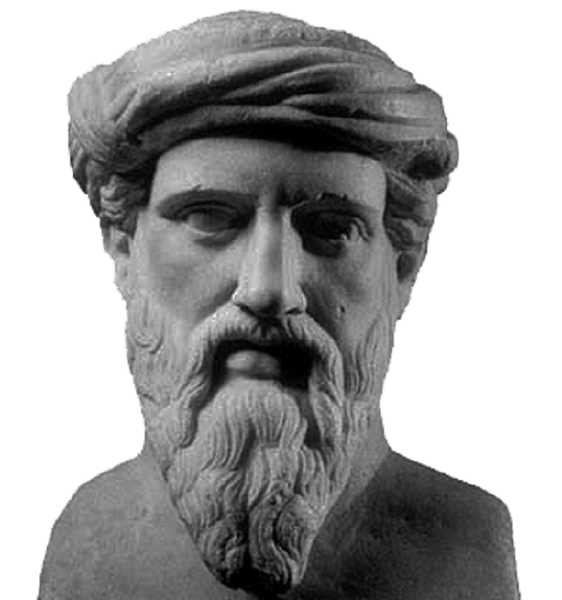The achievement of the synthesis between the initially opposite tendencies of philosophy and mysticism is best observed in scholars such as Pythagoreanism. The Pythagoreans are a factual collective name for a whole range of teachings that began in the 6th century BC. and continue until the third century AD. It bears its name from the legendary personality Pythagoras, for whom there are in fact the most contradictory information, and for whom more later writers wrote, and there are no authors from the time of his life. There are several phases of development in Pythagorean: During the first two centuries, as a schoolgirl, it is a synthesis of religion and philosophy, in which a number of authors contribute without overcoming influence.
What even the involvement of Pythagoras itself is not clear from the 4th to the 2 nd century, it actually merges with Platonism and philosophically takes on its appearance, but there are still special Pythagorean religious communities. For the second century BC, it is a New Testament, which in fact is an eclectic teaching, including elements of Plato, of Aristotle, and the Stoics, but in the inherent and ancient tenderness tendency to reconcile opposites. That is why we can boldly see in Pythagoreanism not a strictly determined teaching, but rather a broad spiritual movement towards unity, harmony and completeness. In it, the mystical experiences and gusts find a rational expression, and rational problems are characterized by immediacy and depth. For Pythagorean, most of the information is given by the fragments of Pythagorean Philolai, a Socrates contemporary, even though some of them have been disputed. Valuable information is given by Aristotle, who admits, however, that he has only heard about Pythagoras and Pythagoreans. Plato's accounts have this drawback that they can not distinguish Pythagoras from the Platonic teaching itself. From Theophraft, there was a lot of writing about Pythagorean, but more than second and third hand. In this case, the greatest difficulty comes from the fact that Pythagoras himself did not leave anything written about his personality and his doctrine.
Pythagoras' personality has been the subject of many different views and arguments. For some, his existence as a historical person is doubtful and only legends have been created for him. For others, he is a historical person, but he does not know what he has studied, so he is a great scholar, others as a philosopher, a third as a religious teacher, a fourth as a social-ethical activist, a fifth as a miracle worker and a prophet. It seems, however, that all of them were right at the same time, and that the versatility of his personality made them appreciate it from a different point of view. Some, like Heraclitus, did not appreciate its breadth but dountily over it, but so positively testify to Pythagoras' historical existence and the breadth of his mind. In one of his famous fragments, Heraclitus says, "Pythagoras, the Monezarh's son, has all worked hard in the doctrine, and by combining the teachings of others, he has created his own philosophy of multilingualism and bad skill." In another fragment, Heraclitus says, "Much knowledge does not teach a mind, otherwise it would learn Hesiod and Pythagoras, and also Xenophan and Hekateus." At last there are such writers who not only recognize Pythagoras' historicity but also magnify him as "one of the greatest Greek thinkers," as is the historian Herodotus.

This post has received a 10.41 % upvote from @boomerang.
I appreciated his contributions to science but he did not know the controversy generated by his personality and thought

If you would like to support the educational community by delegating to @steemiteducation, please click on any of the following links. This will ensure that more teachers are supported on a daily basis.
100SP 200SP 300SP 400SP 500SP 750SP 1000SP 2000SP 3000SP 4000SP 5000SP 10,000SP 25,000SP